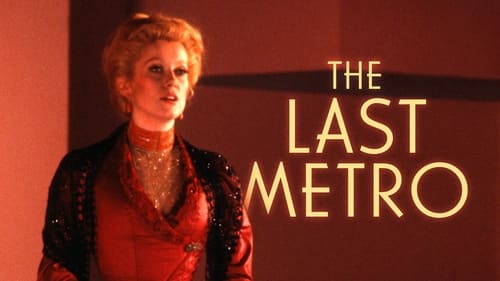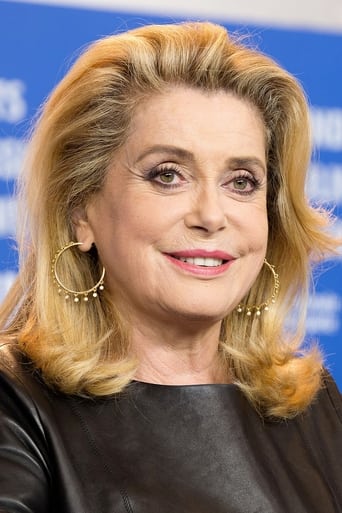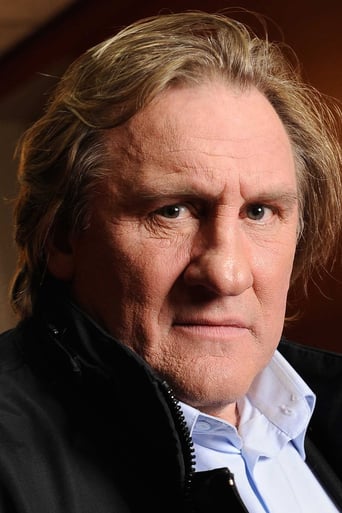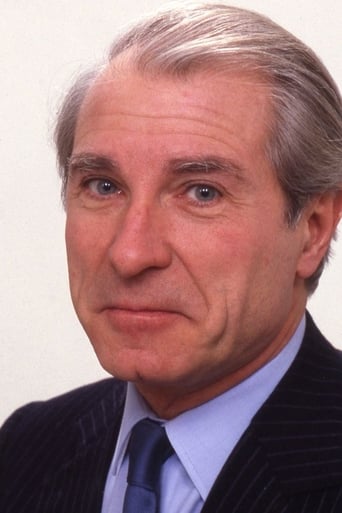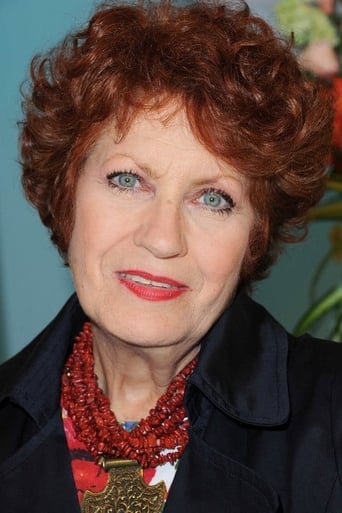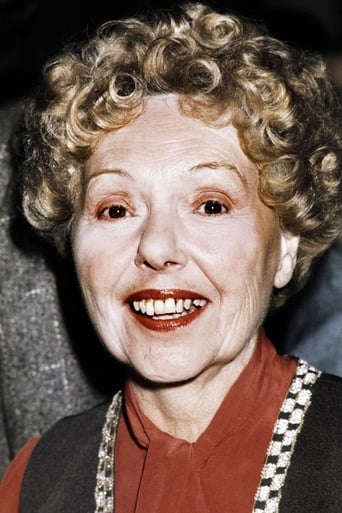Colibel
Terrible acting, screenplay and direction.
Gary
The movie's not perfect, but it sticks the landing of its message. It was engaging - thrilling at times - and I personally thought it was a great time.
Geraldine
The story, direction, characters, and writing/dialogue is akin to taking a tranquilizer shot to the neck, but everything else was so well done.
Cheryl
A clunky actioner with a handful of cool moments.
antcol8
The "what's happening on stage is mirrored by what is happening in real life" trope is beloved by most of the great filmmakers. The screen inside of the screen; the frame framing; a window that looks out - or in. But honestly, not many of them have made their best films when they focus on become Cinematic Pirandellos. "The text is a tissue of quotations" said my boy Roland Barthes and, without trying to insist that viewers drink the Structuralist or Semiotician Kool - Aid, it would be great if people would stop focusing so much on the stories of these films and spend some more time thinking about how they engage with Films, Film, the nature of seeing, the nature of the porous, ambiguous relationship between "illusion" and "reality". I could see the great Student of Cinema in every frame - many films were evoked, but somehow I kept coming back to the 1956 remake of The Man Who Knew Too Much (Hitchcock) and The Golden Coach (Jean Renoir). But Truffaut's exhaustion is what resonates the most; everything feels trotted out, like a revival of situations and themes that were once vital and alive, and now have become habits and tics. Luckily for François, he met Fanny Ardant right around this time and was rejuvenated into making that really misunderstood and underrated Masterpiece, The Woman Next Door. All of the techniques of Classical American Cinema (Hitchcock, of course, but not only him) are used in that film with a freshness and a sense of rediscovery that is totally lacking here. When that scene featuring a wounded Depardieu comes in at the end, you can see the fact that it's - wait for it - actually a play! - coming a mile away; not that this in itself is bad, but even this use of the "Brechtian" awareness-of-the-"madeness"-of-the thing riff which was a major feature of the audacious early Nouvelle Vague has become a lightly amusing - not even, really! - riff that Truffaut must trot out in order to maintain some Middle Aged semblance of New Wave cred. "Maturity" is a double - edged sword. Renoir, considered in the 30's as the most "natural" of filmmakers, embraces "theatricality" more and more in his later works, and while this works brilliantly in The Golden Coach, many of his later films feel stiff and lifeless to me. I remember feeling like Picnic on the Grass was the geriatric version of Day In The Country. Mais on doit revenir a nos moutons...I'm not going to be as harsh as Godard, who, because of these later films referred to his former comrade as a "fake" and a "liar". First of all, there was life in the old dog yet (If Godard didn't like The Woman Next Door, he was a hypocrite; it's a good as the films of Sirk or Ophuls that he praised when he was a critic, and for the same reasons), and second, this film has its little pleasures, although there are still so many things I could tear apart about it. I just have to mention that scene of the first night of "Disappearance", the main play-within-a-play of this movie. At the curtain call, the camera searches around the theater, and gives a real WPA - style "look, people from all walks of life are transformed by The Theater" kind of shot. Rich! Poor! Gay! Straight! Nazis! Jews!...Something's wrong with that picture...no Cartier - Bresson, this wasn't the appropriate moment for a "Family of Man" shot, I don't think! The form of the shot and what it says clash in a jarring way. Maybe Truffaut was too exhausted to hate Nazis...Maybe he should have pulled out Sirk's A Time to Love and A Time to Die to get a little more nuance into the thing. I mean, I know he's a "humanist" and everything, but...Yummy acting. Yummy actors. Yummy set design. Yummy cinematography. So what. The Occupation and The Resistance feel like a fancy dress - up party. No tension, no energy, no drive, no feeling of necessity. Cinéma de Qualité, in your face, yo!
lastliberal
François Truffaut's homage to the theater was an Oscar and Golden Globe nominee and won a basketful of César Awards. It takes place in Nazi occupied Paris in 1942 and shows how the French coped with that tragedy. The anti-Jewish propaganda is continual throughout.Catherine Deneuve is magnificent as the wife of a theater owner (Heinz Bennent), who now runs it while keeping her Jewish husband hidden in the basement.Gérard Depardieu is her new leading man. He is stunningly suave and comedic as a womanizer, who also happens to be part of the Resistance. His repartee with Arnette (Andréa Ferréol) is hilarious.Bennent was excellent as the husband and director in the basement. Seeing him just before the play opened was just as I imagine it is for all directors.The music and cinematography were excellent also, and Truffaut's direction was flawless.A superb ending!
blanche-2
Set in occupied Paris, 1980's "The Last Metro" is about a theater trying to survive in wartime Paris. Lucas Steiner, the German manager and director of the theater, is said to have fled Paris and left his beautiful movie star wife (Deneuve) to run the place in his absence. What no one knows is that Steiner never left - he's hiding in the basement of the theater until Marion can arrange a safe passage for him to the free zone.Marion is unable to hire Jews in her theater and unbeknownst to her hires a very political man, Bernard Granger (Depardieu) as her leading man. The two fall for one another, but Marion doesn't act on her feelings because of her husband. Marion must put up with the anti-Semite critic Daxiat (Jean-Louis Richard), and when Bernard comes down on him for an insulting review, Marion is afraid the theater will be closed and washes her hands of him.This is a film about people living in trying times and attempting to survive and do the work they love while danger lurks everywhere. The photography is beautiful, and the film is done with great style and captures the '40s atmosphere beautifully. Deneueve is breathtakingly beautiful, but all of the faces are so much more interesting than one finds in an American film. A captivating movie - I loved every minute of it.
ikalafatis
Le Dernier Metro is the portrait of a woman. An ageing, beautiful, authoritative, successful and famous actress caught in her own personal quagmire, and that of a strange historical era.It's 1942 and Paris screams under the German occupation. A quiet scream, at least as portrayed by Truffaut, where Parisiens go on living their everyday lives as close to normal as they can. The German element is of course ubiquitous, always lurking in the shadow of normality like an undiagnosed disease. The black market, the Jewish persecution, the curfew, the collaboration and the resistance, all are accepted as just another fact of life.The real threat though is the unknown. What will the war bring? How longer will it last? And yet, decency and normality go on being the bourgeois lifestyle of choice, simply because most don't know how to really survive without the city, without its theaters and fashion circles. Without this superficial normality.In the middle of this strangeness stands a woman disillusioned by her life. Deep inside, this poignantly beautiful, famous, smart and strong woman is empty. Torn between her professional and artistic duties that have increased dramatically since her Jew husband and theater chef fled to save his life, and her ageing femininity and her devoid of passion life, she revolves around the sole remaining centrepiece of her life, acting. Only acting proves to be just another lifeless remain of her previous life.Should she stay faithful to a husband that she stopped loving a long time ago? Do they both cling on to their failing relationship just for the sake of normality, to survive this strangeness of an era? Will tomorrow ever come, and if it comes will she be too old to enjoy it? Deneuve is perfection. The script has most probably been written with her in mind and it shows. Nowhere in the film is she caught relaxing, even in the most ambiguous moments her eyes are crisp clear on her intentions.Depardieu is solid but lacks the internal flame his character should possess, probably due to him being influenced by Deneuve's coldness.Poiret and Bennent are sublime in secondary but very important roles. Richard underplays his character's potential as a threat. The rest of the cast are adequate and in control of their roles.Truffaut delivers a quiet film with claustrophobic cinematography, low-budget sets, fabulous costumes and minimal music. Just like a real theatre show. The director's brilliance drives through the sharpness of the second World War with a fine comb and picks only what's relevant to the story, and nothing more. A film to admire, but not to be inspired from. And there lies probably the only fault of the film. The nouvelle vague has matured and settled down with a sigh.Watch this film just to experience the ferociously magnetic beauty and strength of Catherine Deneuve. Or if you really love theatre. Or both.

